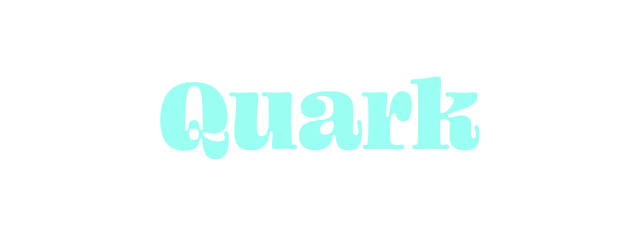Quark
Noun
- (Physics) Any of a number of subatomic particles carrying a fractional electric charge, postulated as building blocks of the hadrons. Quarks have not been directly observed but theoretical predictions based on their existence have been confirmed experimentally.
Example Sentences
“During the 20th century, scientists discovered the proton, electron, neutron, and quark.”
“The physics professor’s research was devoted to observations of the quark.”
“An ordinary microscope is nowhere near powerful enough to show you a quark.”
Word Origin
English, 1960s
Why this word?
The building block of theoretical physics is the quark, which is a type of particle and a fundamental component of matter. We won’t attempt to explain how quarks work, but we can give a little insight into the name. In 1964, physicist Murray Gell-Mann knew that he wanted to pronounce his newly discovered particles as “kwark,” but he settled upon the spelling “quark” after reading “Three quarks for Muster Mark!” in the novel “Finnegans Wake” by James Joyce. There are different types of quarks (also known as “flavors”) named “up,” “down,” “bottom,” “top,” “strange,” and “charm.” If you’re in Europe, you might also eat a dish of quark, a dairy product Americans know as “cottage cheese.”
top picks in Inbox Studio network
Word Daily is part of Inbox Studio, which publishes content that uplifts, informs, and inspires.











 Subscribe to Better Report
Subscribe to Better Report

